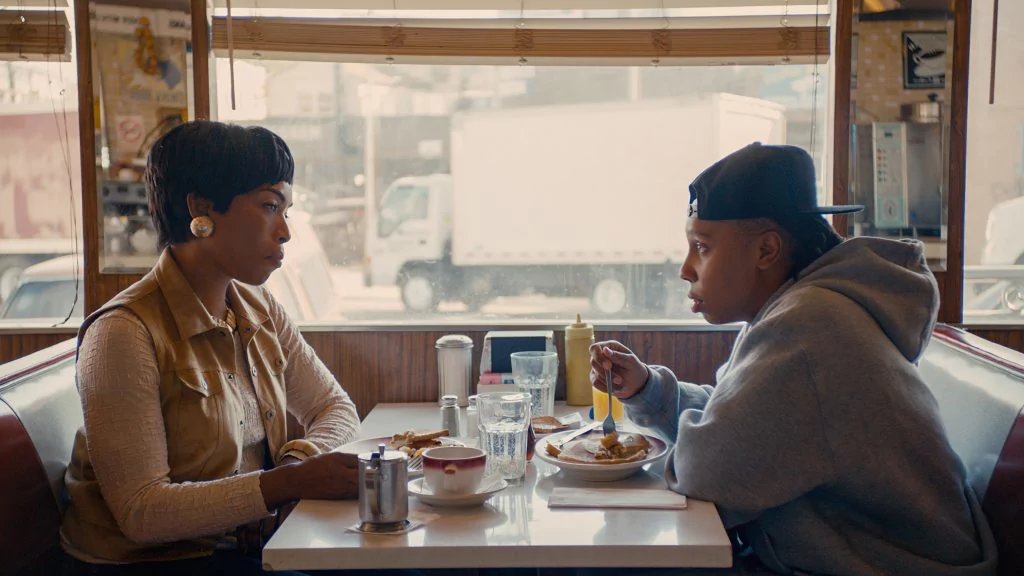‘I don’t want life to be hard for you. It is hard enough being a black woman in this world. Now you want to add something else to that?’
– Catherine (Denise’s mother), Master of None
Master of None’s beautiful episode Thanksgiving came out this year, prompting me to reflect upon how I navigate the world as a queer* woman of colour. The episode follows the character, Denise, and her journey of reconciling out her sexuality, and her mother’s slow acceptance of it. The scene where Denise comes out to her mother in the diner resonated with me as it reflected on my own fears about coming out. While I am not a queer* black woman, I see my experience represented in a way that I’ve never seen before.
Coming out is seen as a milestone for individuals in the queer* community. Society presents it as a way to be your true self in front of others, to live an authentic life. However, this is a performative act requiring you to present an ‘authentic’ you to others, even though you don’t owe them anything. I’ve seen coming out parties and celebrations surrounding a person embracing their sexuality and opening up about that part of their life to others. I’ve seen videos of people coming out online whether to face the camera to tell an audience or it’s to others who react. These online videos (mainly featuring white people) generate so many views and clicks; they’ve made a spectacle of coming out. I hate this expectation of me to present other people with a truth I have barely begun to grasp.
These white people have waited for when they feel safe enough to come out, and kudos to them as it is a terrifying act. However, as a person of colour, my experience of coming out would differ to that of my white peers due to cultural differences. I don’t have the safety net of being ‘white’, and I don’t possess that greater chance of my parents accepting my sexuality. The likelihood of my parents accepting my sexuality is slim, and I am refusing to risk financial stability for ‘living an authentic life.’
Therefore, coming out to my family is not an option. I am of Chinese descent and, in my experience, there has been the assumption that everyone is heterosexual and cisgender within my culture. It denies other sexualities, and gender fluidity is not a concept. One only has to look at the vitriolic hate campaign on WeChat concerning Safe Schools and the plebiscite to witness it.
I suspect my parents have their suspicions but prefer not to have a definite answer, assuming that I am straight. Cultural ideas of queer* people inform my parents’ homophobic beliefs. My parents would see my ‘deviant’ sexuality as a failure on their part to be good parents. My parents will never say ‘But we always knew you were into girls.’ My parents will never say ‘oh right, we assumed you were bisexual.’ My parents would tell me that I’m ‘going to hell,’ and that I’m a ‘negative influence who shouldn’t drag my siblings down.’
‘Some black people think being gay’s a choice, and when they find out that their kid is gay, they try to figure out what they did wrong.’
– Denise, Master of None
Maybe one day, I’ll tell my parents. For now, I’m content in living in this liminal space where I am simultaneously straight and queer* to them, as a ‘Schrödinger’s queer*’.
We acknowledge the Ngunnawal and Ngambri people, who are the Traditional Custodians of the land on which Woroni, Woroni Radio and Woroni TV are created, edited, published, printed and distributed. We pay our respects to Elders past and present. We acknowledge that the name Woroni was taken from the Wadi Wadi Nation without permission, and we are striving to do better for future reconciliation.
